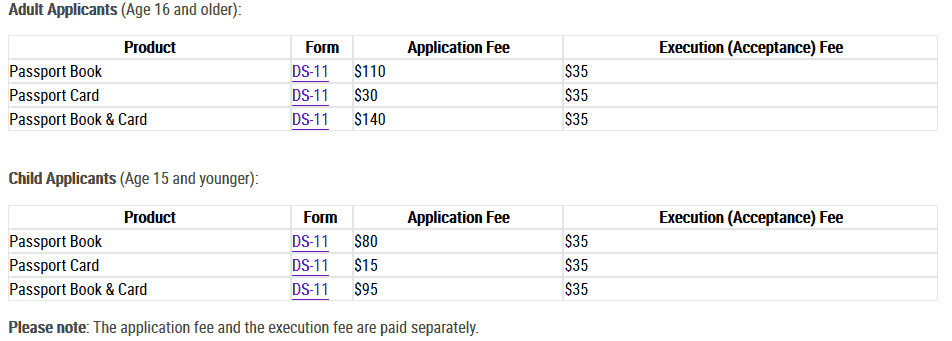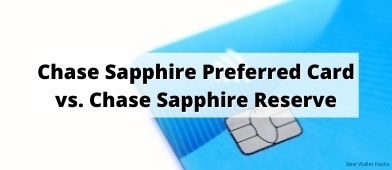If you’re planning on traveling outside the country in the next few months, you’ll need to obtain a passport. It’s a fairly complicated process, and generally takes several weeks (or longer) to complete.
Even if you’re not planning on international travel in the foreseeable future, it’s always a good idea to have a passport anyway. You can never know if you may need to travel outside the country on short notice. In addition, a passport can serve as personal identification in certain situations even here at home.
Because of the time it takes, it’s always best to apply for a US Passport before you actually need one.
What is a Passport and Why is it Necessary?
A passport is an official travel document issued to citizens by their national governments. It establishes both identity and nationality, enabling citizens of a country to travel internationally.
In the US, passports are issued as a booklet, typically with a dark blue binding, that lists identifying information, such as your full name, national identity (USA), date of birth, place of birth, issue date, and expiration date.
The passport will also include your photo and a passport number, which will be printed in the booklet. The passport will indicate that it has been provided by the authority of the United States Department of State. And finally, you’ll be required to sign your passport.
Each time you visit a foreign country, you’ll be required to present your passport to government officials of that country, who will stamp it indicating you’re approved for entry. It will normally enable you to stay in a foreign country for a limited amount of time, typically no more than 30 days. However, this can vary from one country to another.
If you’re going to stay longer than the time permitted by the country you’re visiting, you’ll likely need to apply for a visa, which will entitle you to live and even work in that country for a specific amount of time. In some cases, a visa may be required in addition to a passport.
Within the US, US passports are sometimes also used as proof of identity for applications, such as for employment or a driver’s license. A US passport is valid for 10 years, after which you will be required to apply for renewal.
Where to Apply for a US Passport
Generally speaking, a passport application must be submitted in-person. Unfortunately, there are only 26 passport offices around the country, and there may not be one located in your state.
However, in most cases you will be able to submit your application through your local post office. That’s what I did when I applied for mine. I was able to complete the entire process through my local post office. However, don’t assume every post office has the capability to handle passport applications. You’ll need to call in advance. It’s likely only select post offices in your area will have the capability.
That’s not a bad arrangement either. If the post office is set up to accept passport applications, they’ll also provide passport photos. That’s important, because passport photos have very specific requirements. The post office will know exactly what those requirements are, making the process much easier.
Though it may be possible to walk into the post office and have them process your application, it’s much better to call in advance and schedule an appointment. The whole process takes about 15 to 20 minutes, and if there are several people ahead of you in line, it may require several hours of your time. Schedule a specific time, and make sure you aren’t late. In a busy post office, being late may either move you to the back of the line, or even send you home to set a new appointment.
Passport applications are not processed at the post office. They do a cursory review to make sure you have all required documentation, and that your application is fully completed. If everything is in order, they’ll forward it to the State Department for processing.
IMPORTANT: Don’t sign your application until instructed to by the acceptance agent.
How to Apply for a US Passport
To apply for a US passport you must complete Form DS-11 if any of the following apply to you:
- It’s your first application for a passport.
- You’re under 16 years old.
- You had a previous passport that was issued when you are under 16.
- Your previous passport was lost, stolen, or damaged.
- Your previous passport was issued more than 15 years ago.
The form is six pages long, however, only two pages represent the actual application. If you’re a minor, the application must be partially completed by a parent or legal guardian and signed by that person.
Renewing Your US Passport
If none of the above situations apply to you, and particularly if you’re renewing an existing passport, you’ll need to complete Form DS-82.
Similar to the DS-11 application, the DS-82 is six pages long, but only two pages need to be completed. Since it’s a renewal, you can mail the application and required documentation to one of the three addresses listed in the instructions. Note that the third address is for expedited service should you need renewal in less than the usual amount of time.
Much like the DS-11, the DS-82 application requests general identification information but also asks for information about your current passport.
Required Documentation to Submit with Your Passport Application
Expect to provide the following documentation with your passport application:
Evidence of your Social Security number. The best documentation is your Social Security card. If you don’t have a Social Security number, you must submit a signed and dated statement that reads: “I declare under penalty of perjury under the laws of the United States of America that the following is true and correct: I have never been issued a Social Security number by the Social Security Administration.”
Evidence of citizenship. You can submit a fully valid, undamaged US passport even if it’s expired. Otherwise, you can provide a US birth certificate, which must be 1) government-issued, 2) list your full birth information as well as your parent’s full names, 3) have the registrar’s signature and date filed with the registrar’s office, and 4) have the seal of the issuing authority.
Alternatively, you can submit a consular report of birth abroad or certification of birth, certificate of naturalization, or certificate of citizenship. Any documents submitted must be an original or certified, physical copy. To be considered certified, the document must have the seal or stamp of the official issuing authority.
Present ID. One of the following items must be submitted to the acceptance agent:
- Valid or expired, undamaged U.S. passport book or passport card
- In-state, fully valid driver's license or enhanced driver's license with photo
- Certificate of Naturalization
- Certificate of Citizenship
- Government employee ID (city, county, state, or federal)
- U.S. military or military dependent ID
- Current (valid) foreign passport
- Matricula Consular (Mexican Consular ID) – commonly used by a parent of a U.S. citizen child applicant
- U.S. Permanent Resident Card (Green Card) – commonly used by a parent of a U.S. citizen child applicant
- Trusted Traveler IDs (including valid Global Entry, FAST, SENTRI, and NEXUS cards)
- Enhanced Tribal Cards and Native American tribal photo IDs
- Other documents: In-state, fully valid learner's permit with photo, In-state, fully valid non-driver ID with photo, and temporary driver's license with photo. Note: you may be asked to present an additional ID when presenting one of these 3 documents.
You’re also advised to bring a photocopy of any documentation you submit with your application. The photocopies must be on white, 8 ½ by 11-inch standard paper, single-sided, in black and white, and clearly legible.
Photo. If you’re mailing your application – as would be the case for renewal – you must include one photograph with your paperwork. The photo must meet all photo requirements, which means it's best taken at a place that specializes in passport photos.
Fees Required for a Passport Application
Application fees are as follows:
Notice that two types of passport documentation are provided, a passport book, and a passport card. You can apply for each individually or both at the same time. As an adult, you’ll pay two fees for the passport book itself, a $110 application fee, and a $35 execution fee. Note that these must be presented as two separate payments.
Passport book Versus Passport Card
A passport book is the normal passport form most people apply for, since it offers universal passage. But it may be more convenient to carry a US passport card if your travel plans are more limited.
However, the card can only be used at land border crossings and seaports of entry from Canada, Mexico, Bermuda, and the Caribbean. It cannot be used for international air travel. You can apply for both at the same time, but as the fee schedule above indicates, you’ll need to pay an additional $30 for the card.
If you would like to have your passport application expedited, there is an additional fee of $60. In the next section, we’ll discuss why that may be necessary. That payment will need to be separate as well.
How Long Will it Take to Receive Your Passport?
You should expect the application process to take 6 to 8 weeks or longer. Longer will certainly be the case if the State Department requests additional information or determines any of the documentation submitted to be incomplete. This is why it’s critical to apply well in advance of any planned international travel.
If you do need to get your passport sooner, there are provisions to have your application expedited:
You can track the status of your passport application online. However, be aware that due to the coronavirus, the State Department is not offering expedited service until further notice. The agency further advises that all passport applications will experience delays due to the coronavirus.
Other Information to be Aware of When Applying for a Passport
The following tips can help you better navigate the passport application process – we’ve already covered some of these, but they’re well worth repeating:
- Replacing an existing passport can be done by mail, but a first-time passport must be applied for in person.
- You will be required to submit original documentation with your application. Those documents will be returned to you in a separate mailing, once your passport is issued.
- You can request 1-2 day delivery on a passport book, but not a passport card.
- If you owe child support, and you’re behind by $2,500 or more, you will not be eligible for a passport.
- You won’t be able to use standard photos provided by a photographer. The State Department has very specific photo guidelines, and we recommend having them taken at the post office for passport purposes.
- Check with the facility where you’re applying for your passport to find out what the acceptable methods of payment are. For example, when I went for my passport application they did not accept cash.
- The fastest way to get your application approved and your passport issued is by applying directly a US passport office. However, these are admittedly few and far between.
- When traveling abroad, be sure you have your passport with you at all times. Though they’re mainly needed at airports, they’re sometimes requested at other locations.
- Once you receive your passport, keep it in a safe place and do your best to protect it from being damaged. As you can tell from the application process above, replacing it is likely to be complicated. That’s plenty of information for you to begin the application process. If you have any other questions, you can check the State Department Passport website.
Summary
It's best to apply for a passport before you actually need it as it can take several weeks. You won't want your whole trip to be delayed or canceled because the government took too long to get you your passport.
If it's been over 15 years since you last received a passport, or it's your first passport ever, you'll need to apply in person. Your local post office may be your best bet for applying since they know all the requirements and be able to take your picture. But call ahead and schedule an appointment so you aren't waiting for hours.






If you find you need a passport in a hurry there are ways to shortcut the process. Typically if you happen to know one of your US Senators or Representatives personally you can request help from their office and they can really expedite the process. I found a mistake on my passport shortly before an overseas trip and because our Representative in Congress was a friend of mine going way back, his office got me an appointment the same week and I had a corrected new passport in plenty of time for my trip. Even if you do not know… Read more »
That’s a great tip – thanks!